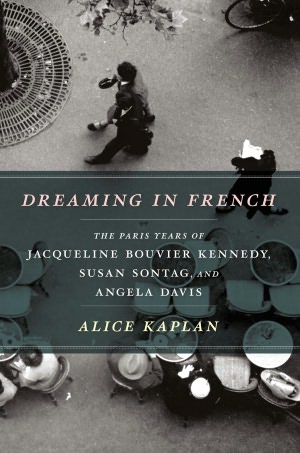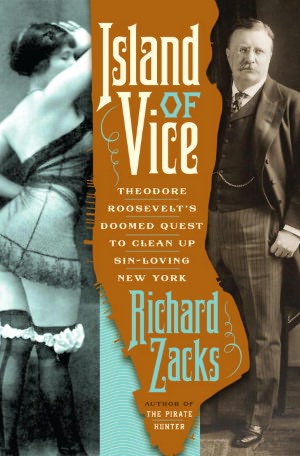Also reviewed in the NYT:
- Anatomy of Injustice: A Murder Case Gone Wrong (Alfred A. Knopf), by prosecutor-turned-investigative-reporter Raymond Bonner. Historian Kevin Boyle describes the book, here, as "mesmerizing."
- Cosmic Constitutional Theory: Why Americans Are Losing Their Inalienable Right to Self-Governance (Oxford University Press), by the Honorable J. Harvie Wilkinson III . Reviewer Jeffrey Rosen characterizes the book, here, as at once "modest," "invaluable," "unusual," and "inspiring." "For law students and citizens who are frustrated with the way that all the constitutional methodologies fail, in practice, to deliver on their promise of helping judges separate their political views and judicial decisions, Wilkinson’s primer offers a diagnosis of the problem and a self-effacing solution."
- Freedom's Gardener: James F. Brown, Horticulture, and the Hudson Valley in Antebellum America (New York University Press), by Myra B. Young Armstead. According to reviewer Andrew Wulf (here), Armstead uses the diary of runaway slave, gardener, and "little capitalist" James F. Brown to "gain[] access to a larger view of antebellum America and 'the development of national citizenship.'" Wulf also praises the the book as "beautifully researched" and "bursting with detail."
[A] phenomenon as powerful and versatile as the American romance with France has played a vital role in Davis’s story, as it has for women as radically different as Jacqueline Bouvier and Susan Sontag. All three were transformed by studying in France in such a way that they would, in turn, transform the cultural and political life of the United States.Read on here.
This week in the New Republic: The Book: a favorable review of Autumn in the Heavenly Kingdom: China, the West and the Epic Story of the Taiping Civil War (Alfred A. Knopf), an "engrossing new book" by Stephen R. Platt (mentioned in our Feb. 12 round-up, here), and a much less favorable review of The Swing Vote: The Untapped Power of Independents (St. Martin’s), by Linda Killian (the book "adds nothing of value to our understanding of independents in general and of swing voters in particular").
The Wall Street Journal covers Fatal Self-Deception: Slaveholding Paternalism in the South (Cambridge University Press), by Eugene D. Genovese and Elizabeth Fox-Genovese. "Taken together [with The Mind of the Master Class (2005) and Slavery in White and Black (2008)]," writes reviewer Fergus Bordewich, "the books represent a magisterial effort to place proslavery thought and sentiment within the realm of serious intellectual history. Avoiding polemics, the authors generally portray slave owners as honorable, pious and emotionally entangled with their human property to the point of self-delusion."
Also reviewed in the WSJ: David Dorsen's Henry Friendly: Greatest Judge of His Era (Harvard University Press) (here), which we mentioned just the other day (here); Island of Vice: Theodore Roosevelt's Doomed Quest to Clean Up Sin-Loving New York (Doubleday), by Richard Zacks (here); Rogues and Redeemers: When Politics Was King in Irish Boston (Crown), by Gerard O'Neill (here); and Reagan and Thatcher: The Difficult Relationship (W. W. Norton & Co.), by Richard Aldous (here).
A new issue of the London Review of Books is out. It covers modern British art, Greek democracy, Medieval grammar, French children, Hollywood rebels, and much more.
Last, we predicted that this book would grab headlines, and it has: the Los Angeles Times reviews (here) Tinderbox: How the West Sparked the AIDS Epidemic and the How the World Can Finally Overcome It (Penguin Press), by Craig Timberg and Daniel Halperin. More, from NPR, is here.


